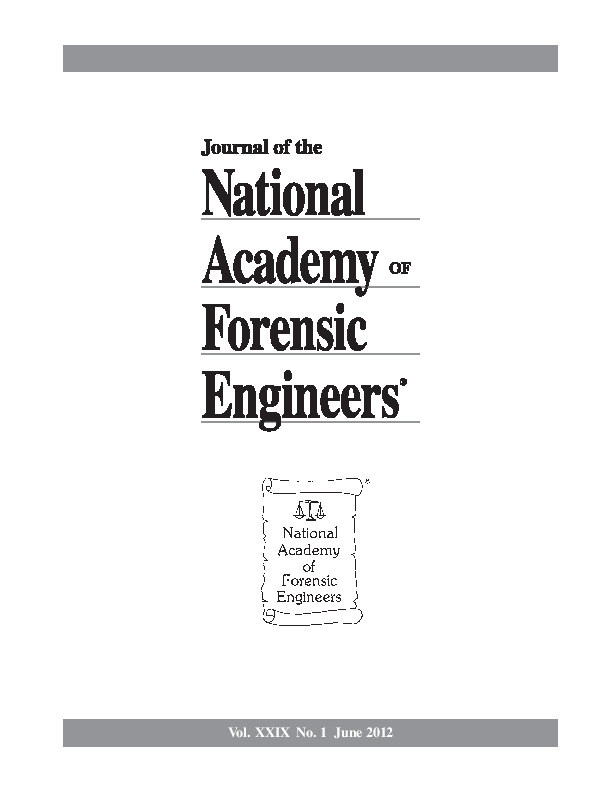Forensic Engineering Investigation Of Failure Of An Oil Pipeline
DOI:
https://doi.org/10.51501/jotnafe.v29i1.766Keywords:
Pipe; piping system; fuel oil; expansion joint; ASME Boiler and Pressure Vessel Code; ASMECode for Pressure Piping B31.3 (Process Piping); code allowable stress; pipe stress analysis; equivalentpressureAbstract
A Below-Grade, Nps 12 Pipeline Serving A Major Commercial Marine Terminal Failed At A Flanged Joint, Causing A Major Leak And Contamination Of The Surrounding Soil. The Gasket At The Failed Joint Showed Evidence Of Localized, Radial Through-Leakage. At The Terminal, The Initial Excavation Of Contaminated Soil Caused Minor Damage To Several Non-Leaking Segments Of Pipe And The Author Was First Tasked To Oversee The Related Inspection, Weld Repair And Corrosion Protection Work. The Author Subsequently Performed A Forensic Pipe Stress Analysis Of The Affected Portion Of The Fuel Oil System Per The Governing Pressure Piping Code. The Results Indicated That The Leaking Joint Failed With Respect To The Code Criterion Of Equivalent Pressure. Further Investigation Revealed That The System As Originally Designed Was Entirely Of Butt Weld Construction With No Flanged Joints, And Would Have Complied With All Code Requirements. The Investigation Determined That The General Contractor Had Made An Unauthorized Substitution Of Flanged Joints For Butt Weld Joints, Without Informing The Owner Or Design Engineer Of Record.Downloads
Published
2012-01-01
How to Cite
Broz, William R. 2012. “Forensic Engineering Investigation Of Failure Of An Oil Pipeline”. Journal of the National Academy of Forensic Engineers 29 (1). https://doi.org/10.51501/jotnafe.v29i1.766.
Issue
Section
Articles
License
Copyright (c) 2012 National Academy of Forensic Engineers

This work is licensed under a Creative Commons Attribution-NoDerivatives 4.0 International License.
All rights © Journal of the National Academy of Forensic Engineers.
Full statement regarding the author's license of copyright to the NAFE is shown on the Copyright section of the Submissions Page.






